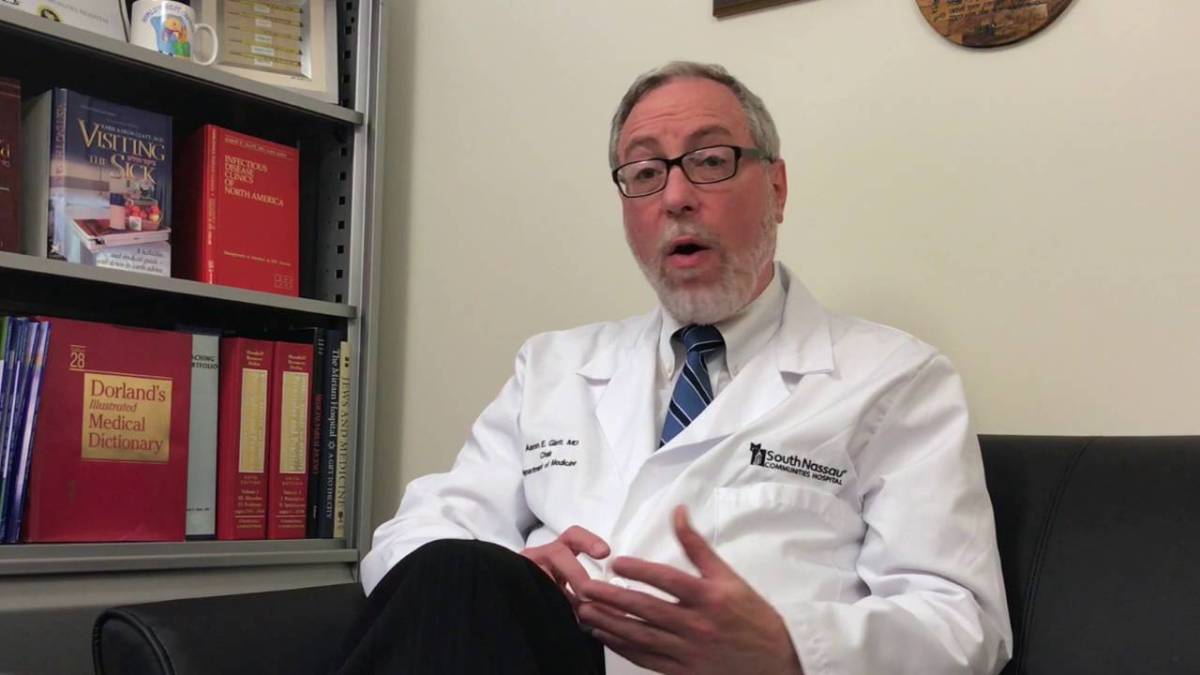Inside a pair of red, white, and blue medical triage tents recently erected to treat coronavirus patients without infecting the emergency room at Mount Sinai South Nassau Hospital in Oceanside, medics battle the pandemic.
The efforts are designed to allow doctors and nurses to continue compassionately caring for the usual hospital full of patients being treated for assorted injuries and afflictions, as well as a rising tide of people being diagnosed with COVID-19 despite unprecedented government-mandated mitigation initiatives restricting work, school, and socialization.
“The healthcare system is already overwhelmed by this,” says Dr. Aaron Glatt, a national expert on infectious diseases who chairs the Department of Medicine at the hospital. “I think that the real heroes of the virus are the healthcare workers that are putting themselves on the line despite the very difficult conditions that they’re under.”
It has been the worst flu season in a decade with 400,000 hospitalizations and 24,000 deaths nationwide by March 21. Then the coronavirus pandemic exploded on Long Island, quickly filling up the remaining bed space at the nearly two dozen hospitals across Nassau and Suffolk counties. Temporary federal hospitals were erected to handle the overflow. Hotels were being eyed as a last resort for makeshift hospitals as of press time.
At South Nassau, staffers converted conference rooms into patient care space and ensured that the hospital’s airflow systems didn’t spread coronavirus to other patients.
“We’re basically creating an entire hospital as an intensive care unit,” Dr. Glatt says.
Although Mount Sinai South Nassau is one of the region’s largest hospitals, with 455 beds, more than 900 physicians, and 3,500 employees, Dr. Glatt remains worried about capacity ahead of the virus’ anticipated peak in mid-April.
“The amount of patients that need ventilators is a concern,” he says, noting that there were more than 200 coronavirus patients, 50 of whom were on respirators, as of press time.
While COVID-19 spreads in similar ways as the flu or common cold, there is still much health experts do not know about this virus. The U.S. Centers for Disease Control warns that the coronavirus may have a long-lasting impact, and, while researchers are working on a vaccine to combat it, one is not currently available.
“Follow the advice of the public health experts,” Dr. Glatt says. “The only reason [the public] should be going outside is to get food. And if they can get food delivered, even better.”
Sign up for Long Island Press’ email newsletters here. Sign up for home delivery of Long Island Press here.






























